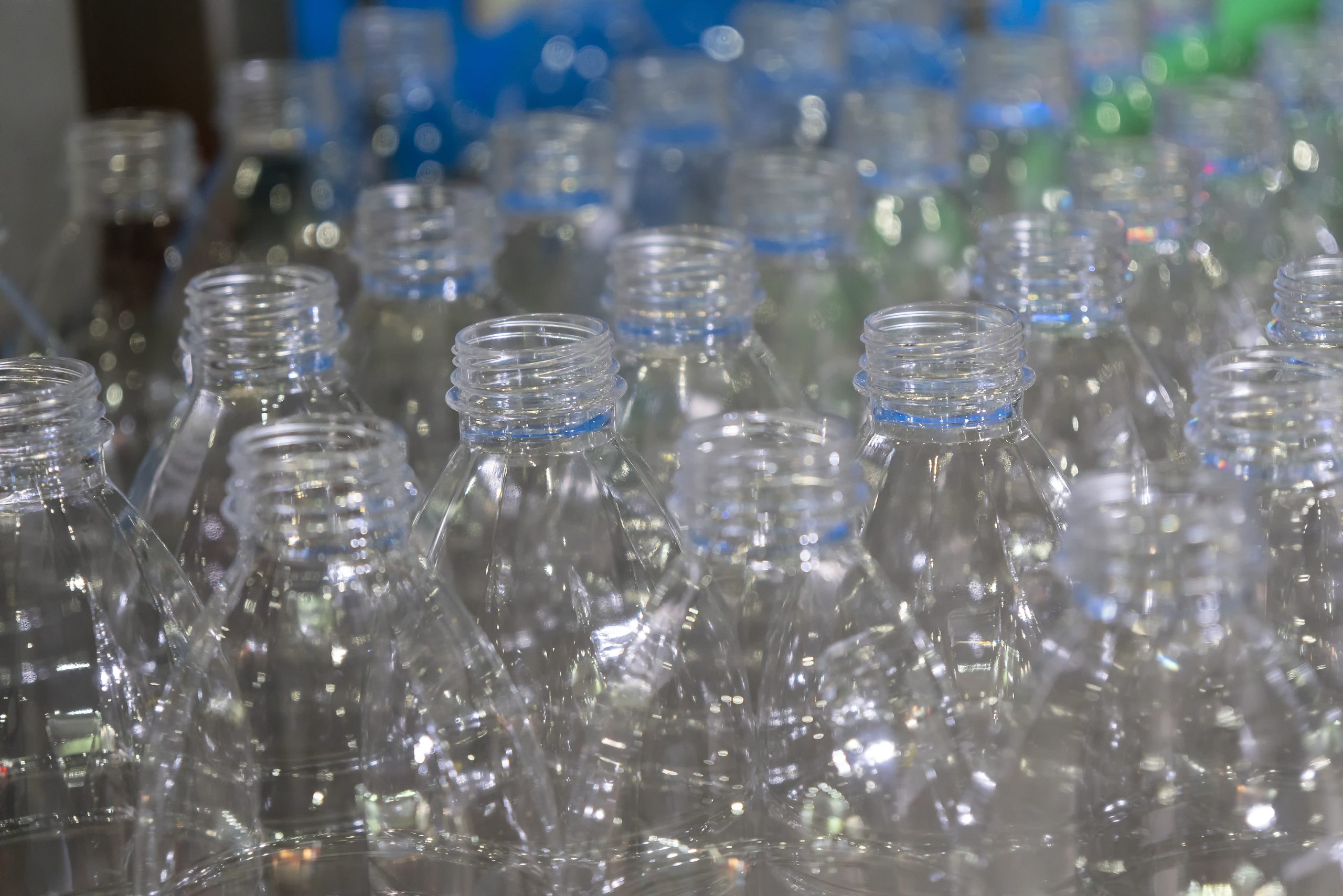PET (Polyethylene terephthalate) bottle blowing is a manufacturing process used to produce plastic bottles, containers, and other hollow objects made from PET material. PET bottles are commonly used for packaging beverages, food products, personal care items, and more.
In Polyethylene Terephthalate (PET) production, compressors are vital for several key stages of the manufacturing process. PET is a commonly used polymer in the production of plastic bottles, containers, and packaging materials.
Compressors are primarily used to supply compressed air for various purposes within the PET production process. They play a critical role in the blow molding process, where preforms are heated and then inflated with compressed air to form the final product. Additionally, compressors are utilized for conveying materials, powering pneumatic tools, and providing control air for process automation.
Efficiency and reliability are crucial considerations in compressor selection for PET production facilities. Oil-free compressors are often preferred to prevent contamination of the PET material with lubricants. Moreover, compressors must be capable of delivering a consistent and clean air supply to ensure product quality and minimize production downtime.
Regular maintenance and monitoring of compressor systems are essential to optimize performance, minimize energy consumption, and ensure uninterrupted production in PET manufacturing facilities.
| The Process
Raw Material
The primary raw material for PET bottle blowing is PET resin. This resin is a type of thermoplastic polymer derived from petrochemical sources. It's known for its transparency, strength, and suitability for food and beverage packaging.
Preform Manufacturing
The first step in PET bottle production is the creation of preforms. Preforms are small, tubular shapes made from PET resin. They are typically produced through an injection molding process. These preforms are essentially miniature versions of the final bottle, with the bottle neck and thread already formed.
Preform Heating
The preforms are then heated in a specialized machine known as a reheat stretch blow molding machine. The heating process softens the PET material, making it pliable and ready for shaping.
Blowing & Stretching
The preheated preforms are transferred to a blow mold, where they are inflated with compressed air. The air pressure forces the softened PET material to take the shape of the mold. Simultaneously, stretch rods stretch the material to ensure uniform thickness and strength in the final bottle.
Cooling
Once the PET material has taken the shape of the mold, it is rapidly cooled to set the bottle's shape and maintain its structural integrity.
Ejection
After cooling, the finished PET bottles are ejected from the mold, ready for further processing, labeling, filling, and packaging.
Quality Control
Throughout the process, quality control measures are in place to monitor the dimensions, thickness, and overall quality of the bottles. Any defective bottles are removed from production.
Trimming
Excess material, known as flash, may need to be trimmed from the bottle neck and base. This ensures the bottles have smooth, clean edges.
Bottle Inspection
Bottles may undergo additional inspections to check for defects, such as cracks, inconsistencies, or contamination.
Packaging
Once quality checks are complete, the PET bottles are packaged and prepared for shipment to beverage and product manufacturers.
Recycling
PET bottles are highly recyclable. Used bottles can be collected, cleaned, and melted down to create new PET resin for the production of more bottles or other plastic products.

PET bottle blowing is a cost-effective and efficient method for producing plastic bottles, and it is widely used in the packaging industry due to PET's desirable properties, such as transparency, durability, and recyclability. The process can produce a wide variety of bottle shapes and sizes to meet the packaging needs of various industries.
